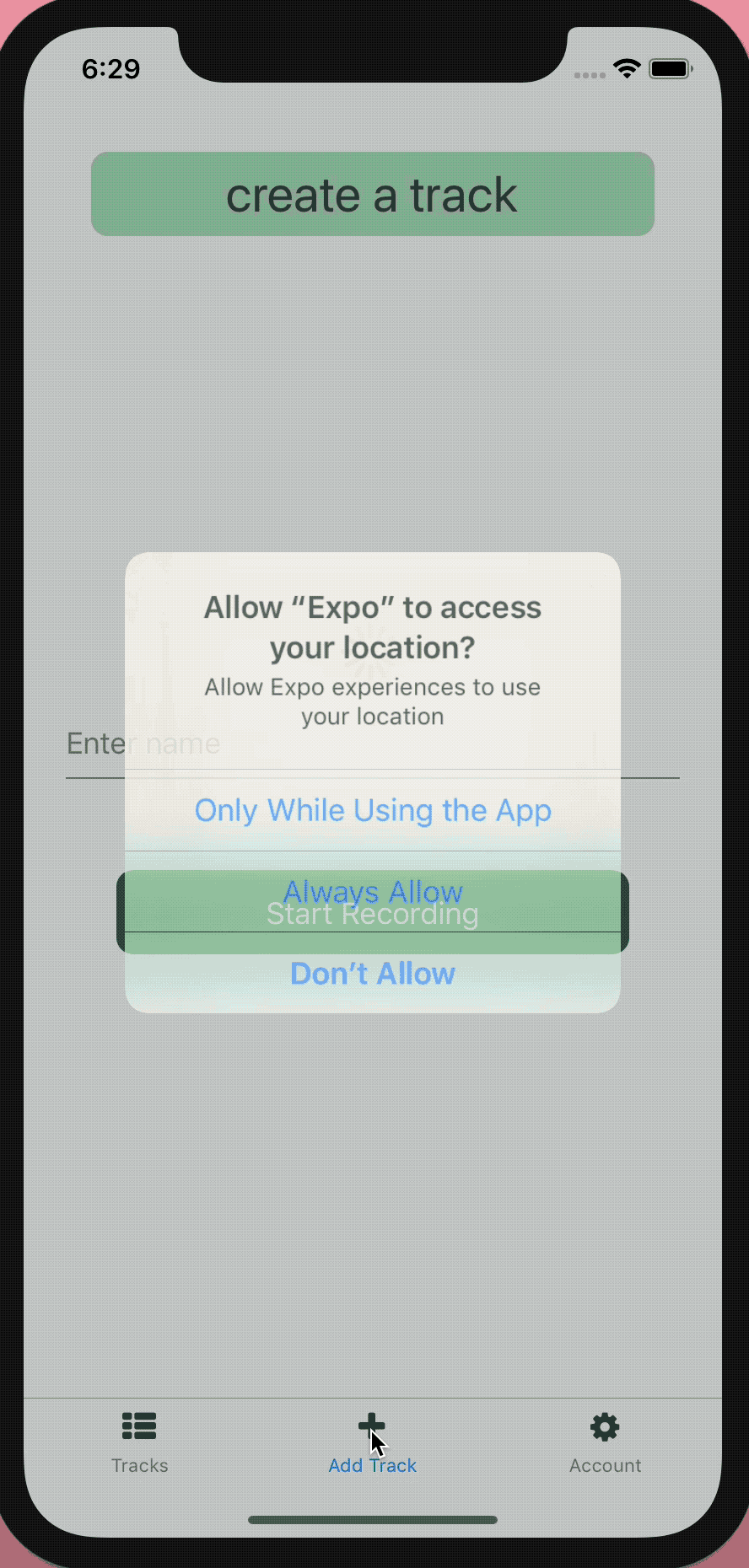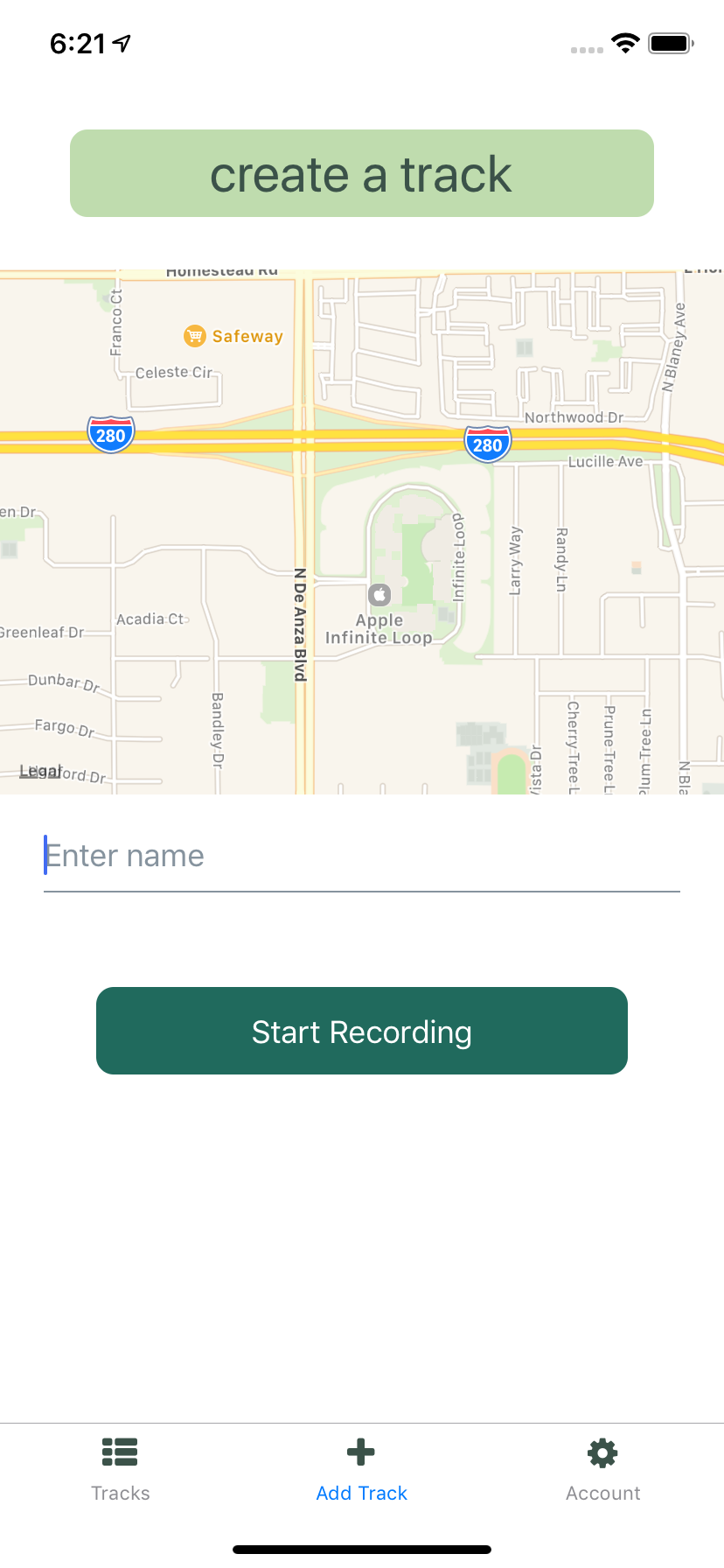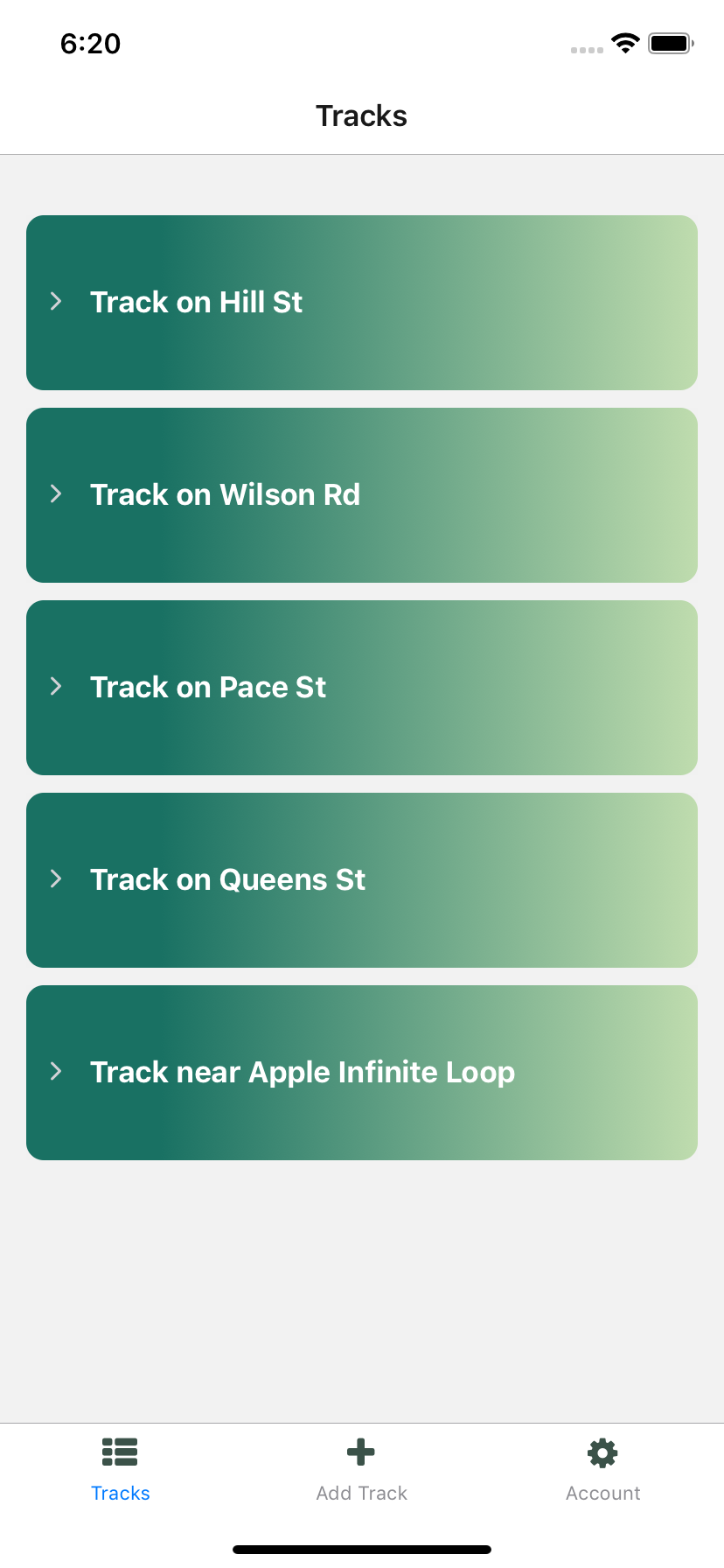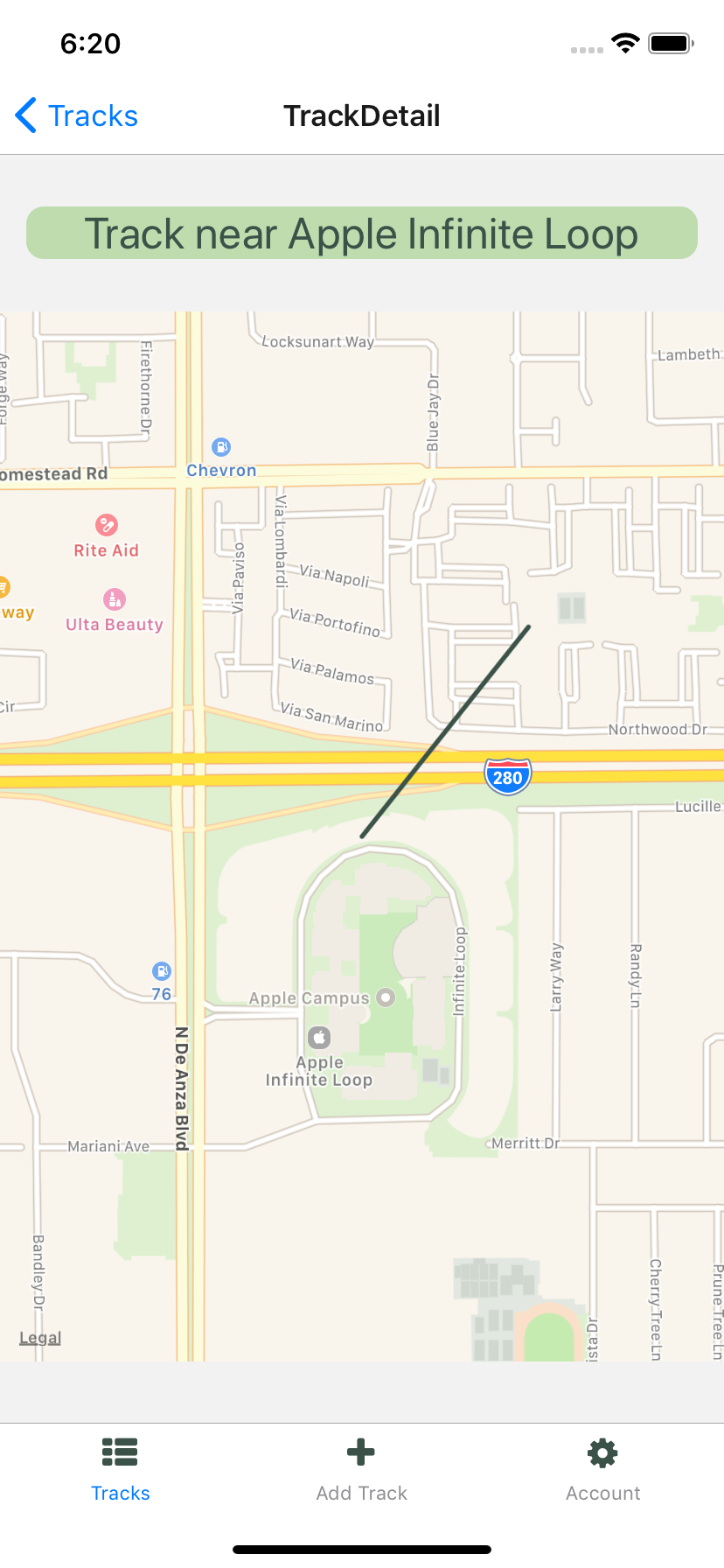 Mobile App - Map Tracking
Mobile App - Map Tracking
Stack: React Native, Express, Node JS, MongoDB
A mobile app that can request the location permission from users, track users’ real-time locations, and draw a route on the map. The users can record, save, and retrieve their tracks. It can be used to record users' running tracks.
In-App Authentication
Used Express and Node JS for backend and set up two API routes: ./signup and ./signin. Used jsonwebtoken for authentication and Bcrypt for password-hashing. Users' hashed credentials are stored in MongoDB database with mongoose library.
Persistent Login
Stored the token in AsyncStorage. The app reads the token in AsyncStorage for persistent login.
Location Permission Request
When the user navigates to create a track, the app prompts the user for permission to track locations. The request is implemented with requestPermissionsAsync() function from expo-location library.
Location Subscriptions
Once the user grants the permission to track locations, the app subscribes to location update events with watchPositionAsync() function from expo-location library.
Included MapView from ‘react-native-maps’ and used Circle and Polyline to track current and historical locations. The Polyline only tracks the locations when the tracking mode is on.
Tracking Mode Turn On/Off
Used state recording to track tracking mode. The tracking mode is on when recording === true and triggered by a button click.
Store/Fetch Tracks
Used Axios to send/receive data from the backend server. Set up /tracks API to post and get tracks. The data is stored in MongoDB with mongoose library.
Express Backend API Setup
Used Jsonwebtoken to check if the user is logged in. Set up database schemas to post new objects to MongoDB databases. Used express to set up routes such as /signup, /signin, /tracks to receive requests from the front end.



